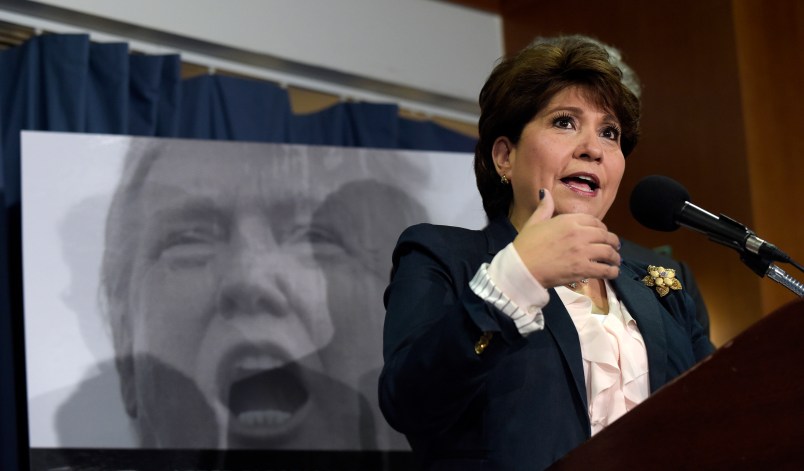PHOENIX (AP) — The largest Latino civil rights organization in the U.S. is changing its name to be less polarizing and more inclusive as it steps up its battle against what it calls anti-immigrant policies by the Trump administration.
The National Council of La Raza, or NCLR, will announce Monday that it will become UnidosUS, a change three years in the making that is in response to members of the group who felt “raza,” meaning “the people,” was outdated and did not resonate with them, President Janet Murguia said.
She insists it was not a reaction to outside critics, including conservatives and others who say the term promotes ethnic exclusivity. It comes as the group gears up for a fight for Latino rights as many in the community see hostility from President Donald Trump, Murguia said.
His administration wants to build a wall along the U.S.-Mexico border, has heavily stepped up immigrant arrests and targeted funding for cities and states that don’t cooperate with federal immigration authorities.
Latinos have more at stake than in the past decade, including battles over health care access and immigration, Murguia said.
“I think this is viewed as an opportunity and we see it as an opportunity to strengthen our or organization, broaden our reach and expand our growth,” she said. “And that’s going to be important as we see the challenges that we’re facing at this particular time.”
Literally translated, “raza” means “race,” but that is not the definition of the word. The term was coined to describe the various races Mexican people come from. Chicano civil rights activists popularized it in the 1960s and 1970s and it’s faced backlash today.
During his campaign, Trump criticized a federal judge overseeing a lawsuit against him by mentioning that he was a member of the San Diego La Raza Lawyers Association.
Other organizations have held on to their names amid criticism that they are outdated and even offensive.
The NAACP, which stands for the National Association for the Advancement of Colored People, has been criticized for keeping “colored,” which many consider offensive. The organization says it’s out of respect for its founders and history.
Murguia pronounces the “US” in UnidosUS like the abbreviation for United States but says the name is purposely missing the punctuation so that it can be interpreted as either “us” or “U.S.”
The organization was founded 49 years ago in Phoenix and is now based in Washington, D.C., collaborating with over 200 advocacy groups nationwide.
It advocates for health care, lobbying for President Barack Obama’s health care law and against the Republican attempt to repeal it in Congress, and fights for better education, housing and job opportunities for Latinos. The organization has focused on increasing Latino voter registration.
Immigration also has been at the forefront of its mission. The group is credited with coining the term “deporter-in-chief” to describe Obama’s deportation policies, which became popular with immigration activists unhappy with those policies.
Murguia said UnidosUS has a bigger battle now under Trump and escalate its battle for Latino rights.
“For us the mode did shift from a lot of the building on the success to protecting and defending the gains that we have made up to this point. It’s been our primary focus in the Trump administration,” she said.






